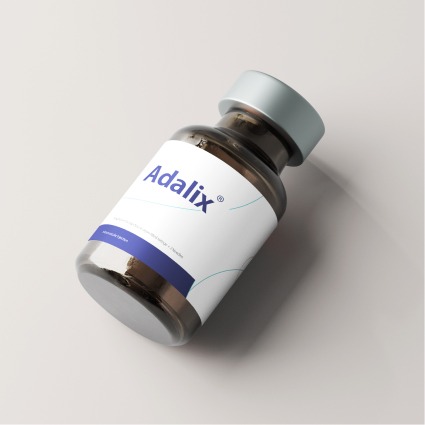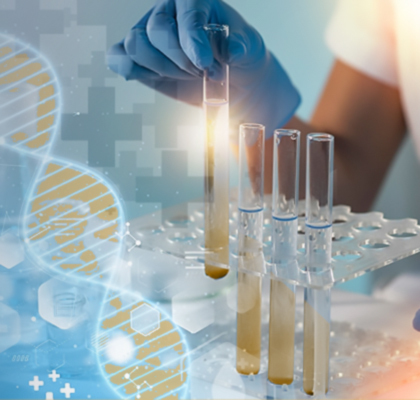Human Papillomavirus, or HPV, is a virus that can cause several types of cancer in men and women, and the HPV vaccine is one of the most widely available and effective ways of preventing its spread. Despite its success, there is a low confidence level in the HPV vaccine in Europe, the lowest level globally. Europeans are also sensitive to the safety of other vaccines, but HPV is a little more different. They have their concerns about it. For example, the vaccine prevents sexually transmitted infections, but some parents aren’t happy because they think their adolescents are too young to get it. After all, they don’t think their child is sexually active and think it will lead to unsafe sexual behavior. In the meantime, there’s speculation about whether this vaccine is banned in Europe. In this blog post, we’ll look at why the HPV vaccine might be banned in some European countries and discuss its potential implications.
The Reality Behind HPV Vaccine Mistrust in Europe
In response to those who ask, “Why is the HPV vaccine banned in European countries?”, It must be said that this issue has not happened until today, and this is not the case at all. Europe and the world have not banned this vaccine since its introduction. However, depending on the distribution process and availability of vaccines, perhaps not all countries have access to HPV vaccines for both girls and boys. Albeit, this does not mean its injection is prohibited. It should be noted that many doubts, speculations, and mistrusts have been raised among Europeans, and we will look at some of them below to see how serious they are.
Dissatisfaction with Unreliable and Incomplete Information
According to some reviews conducted by the Vaccine Confidence Project, the fact that unreliable, biased, and incomplete information is available to the European public has been cited as one of the reasons why they are hesitant to accept the HPV vaccine. There is insufficient evidence to prove the safety and effectiveness of the HPV vaccine, according to Europeans. The fact is that there are hesitant parents who have or would have refused the HPV vaccination; they are worried about the health of their adolescents. In the context of an adolescent vaccine, the link between information, trust, uncertainty, and vaccine safety may be further exacerbated. We all know that teenagers and their parents can develop a wide range of anxieties, especially through social media, which can spread rapidly, even though these claims or rumors are unfounded.
Origins of Unreliable and Incomplete Information
Unreliable and incomplete information can originate from several sources, contributing to widespread confusion and misinformation about the HPV vaccine. This typically begins with non-scientific platforms, such as personal blogs, websites, or social media, where information is often shared without accurate vetting. On these platforms, individuals with little to no medical background can spread personal beliefs and unverified anecdotes, often presenting them as factual information. At the same time, the complexity of scientific information can lead to misinterpretation or oversimplification of data, further compounding the issue. Some media outlets, aiming for sensational headlines, might inadvertently disseminate misinformation by misrepresenting study results. Similarly, gaps in communication from health authorities or medical professionals can result in the public turning to these unreliable sources. The origins of such unreliable and incomplete information are multifaceted, and understanding them is the first step toward addressing vaccine mistrust.
Impact of Digital Media and Misinformation
Digital media plays a significant role in shaping public opinion about the HPV vaccine, with its potential for both enlightening and misleading the public. With the advent of social media platforms, information – accurate or not – can be shared rapidly and extensively, reaching a large audience quickly. This can be beneficial when accurate, verified information is shared. However, it becomes problematic when misinformation or unfounded rumors are disseminated. Misinformation, especially when presented convincingly or aligned with existing fears or biases, can quickly gain traction, leading to mistrust and fear about the HPV vaccine. The echo chamber effect of social media platforms, where users tend to interact with those who share similar views, can further amplify misinformation. Thus, the impact of digital media on vaccine mistrust is significant, turning misinformation into a major public health concern.
Health Professionals and the Information Gap
Health professionals are crucial in disseminating accurate and comprehensive information about the HPV vaccine. However, when there’s an information gap, either due to a lack of knowledge or ineffective communication on their part, it can contribute to vaccine mistrust. If healthcare providers cannot adequately address patients’ questions or concerns about the HPV vaccine, it could inadvertently foster skepticism or fear. The situation is further complicated if health professionals harbor misconceptions or doubts about the vaccine. This can lead to mixed messages being conveyed to patients, contributing to confusion and mistrust. Furthermore, health professionals’ communication ability is critical in the face of complex medical information. Suppose information about the vaccine’s safety, efficacy, and importance is not delivered understandably and reassuringly. In that case, it can create an information gap, undermining public trust in the HPV vaccine.
Health Authorities and Communication Challenges
As trusted sources of health information, health authorities are responsible for effectively communicating about the HPV vaccine. However, they often face significant communication challenges that can contribute to vaccine mistrust. Complex scientific data can be difficult to translate into easily understandable information for the general public. Not being done effectively can lead to misconceptions and fears about the vaccine. Additionally, health authorities must combat the rapid spread of misinformation, particularly on digital media platforms. They often need help to disseminate correct information as quickly and extensively as misinformation is spread. Timing can also be challenging, as delayed responses to emerging concerns or rumors can result in public mistrust. Another challenge is maintaining a consistent message across various communication channels and ensuring this message reaches diverse population groups. Ineffectively addressed, these communication challenges can erode public confidence in the HPV vaccine.
Public Health Literacy and Misconceptions
Public health literacy plays a significant role in how the HPV vaccine is perceived and accepted. A lack of understanding about the virus, the vaccine, and the importance of immunization can lead to misconceptions and mistrust. For instance, some may misunderstand the purpose of the vaccine, viewing it as unnecessary if they believe they are not at risk of HPV. Others may misconstrue the safety and efficacy data, leading to fears about side effects or doubts about the vaccine’s effectiveness. The complexity of scientific and medical information can further hinder understanding, with medical jargon and statistical data often needing to be easier to interpret for laypersons. Misconceptions may also be fueled by misinformation, particularly on digital media platforms, which can spread rapidly and widely. All these factors contribute to a significant information gap that can shape public perceptions and attitudes toward the HPV vaccine.
Understanding Safety and Efficacy Data
Understanding the safety and efficacy data of the HPV vaccine is pivotal for public trust, but this can be a complex task for the general public. Safety data, which details possible side effects and adverse events associated with the vaccine, can be misinterpreted or taken out of context, leading to fears about the vaccine’s safety. Similarly, efficacy data, which provides information on the vaccine’s effectiveness in preventing HPV infection and related diseases, can be complex to interpret. Misunderstanding these data can lead to doubts about the vaccine’s value or necessity. Furthermore, scientific studies often present data in statistical formats that can be challenging for non-scientists to comprehend, leading to potential misconceptions. The issue is further compounded when these data are misrepresented or oversimplified in media reports. A lack of clear understanding of safety and efficacy data can contribute to public mistrust of the HPV vaccine.
Perceived Transparency in Vaccine Development and Approval Process
The perceived transparency significantly influences public trust in the HPV vaccine’s development and approval process. A lack of understanding about these processes can lead to skepticism about the vaccine’s safety and efficacy. People might question the thoroughness of clinical trials, the impartiality of regulatory bodies, or the influence of pharmaceutical companies, especially if they perceive these processes as opaque. Doubts may arise about whether all potential side effects have been disclosed or the vaccine’s benefits have been overstated. Furthermore, the speed of vaccine development can also raise concerns, with some fearing that the process was rushed at the expense of safety. When health authorities do not promptly or adequately address vaccine-related issues or adverse events, this can further diminish perceived transparency. In essence, the degree of perceived transparency in the vaccine development and approval process can substantially impact public trust in the HPV vaccine.
Dissatisfaction with Potential Long-term Side Effects
Europeans are also dissatisfied because they’ve heard about serious adverse reactions in young women. Although these incidents have been rare, Europeans worry about the HPV vaccine’s long-term and severe side effects. Most studies, however, didn’t specify which side effects people were worried about, just that they were worried. This opaque bias can hurt their confidence in the HPV vaccine even if they’ve been told it’s safe and effective.
But the fact is that there is nothing to worry about. It’s one of the most widely used new vaccines, which involves three shots over six months. More than 72 million people have been vaccinated against several strains of HPV that cause cervical cancer, genital warts, and other cancers. While the HPV vaccine may have side effects, we do not believe they are so severe that there is so much opposition against it. According to the European Agency, the vaccination process should not be changed because no review has questioned the benefits of HPV vaccines.
HPV Vaccine Limitations
As explained above, there is no news of a ban on HPV vaccines. The fact is that we don’t claim that everyone needing it can access it easily. Since 2006, vaccines have been available to prevent HPV infection. The European Union (EU) currently licenses three products: (i) the bivalent vaccine, Cervarix; (ii) the 4-valent recombinant vaccine, Gardasil and; (iii) the 9-valent vaccine, Gardasil 9. They have all been widely accepted and used in countries worldwide for HPV prevention because of their benefits. However, the HPV vaccines are relatively expensive, and not all countries have easy access. However, OBP is now making biosimilars of the world’s most popular and in-demand vaccines, like Cervarix, which prevents HPV. The OBP products cost significantly less than the original vaccine samples, making them affordable for all nations.
In the first phase, all countries could not participate due to the high vaccine costs and the increased number of diseases seen in women. It should be noted that HPV vaccination strategies were initially aimed exclusively at girls. Some countries don’t even impose any obligation on their immunization plans so anyone can join. Other countries also provide the vaccine to willing people, but families must pay for it themselves. These are all the issues that create limitations for the HPV vaccine.
HPV Vaccine Shortage
The European Cancer Organization has proposed eliminating all HPV-associated cancers. In its proposed Immunization Agenda, the World Health Organization anticipates that the benefits of vaccines will be extended to everyone, everywhere, and that ‘coverage and equity’ will be one of its strategic priorities. All vaccinations should be provided equitably to all those who may benefit from them. It is estimated that a global shortage of HPV vaccines will last until 2024, despite the European Cancer Organization’s resolution to eliminate all HPV-associated cancers in both sexes in 2018. Extending HPV vaccination to boys in EU/EEA countries may hurt global vaccine availability. Human papillomavirus (HPV) vaccination has recently expanded to boys in many European Union/European Economic Area (EU/EEA) countries. Still, supplies are limited for girls in low- and middle-income countries (LMICs) who are severely affected.
In the country’s most in need, the current global HPV vaccination shortage, expected to last until at least 2024, may delay the introduction of HPV vaccination. There will not be enough vaccine doses for girls from LMICs with a high cervical cancer burden. To extend HPV vaccination to boys, more doses must be procured and administered. Furthermore, it should be noted that the average individual health benefit obtained from an HPV vaccine administered to a boy in the EU/EEA is substantially lower than the average individual health benefit obtained from an HPV vaccine administered to a girl in an LMIC where cervical cancer screening is not widely implemented or well established. There was recently a recommendation by the WHO’s Strategic Advisory Group of Experts (SAGE) on immunization that a temporary pause should be placed on implementing HPV vaccination for boys in countries that are considering doing so. Furthermore, it was recommended to temporarily halt vaccinations of girls and boys older than 15 and multi-age cohort vaccination strategies.
Conclusion
We all know that HPV vaccines are increasingly popular worldwide to protect against the human papillomavirus (HPV), which can cause several health problems. As a result of safety concerns, several European countries have raised concerns about HPV vaccines in recent years. In both medical circles and the general public, this has led to a lot of confusion and controversy. This vaccine has even been rumored to be banned, but it’s not. Individuals across several countries in Europe are becoming more skeptical and losing confidence in HPV vaccines, in health authorities, in “experts”, and in governments as a whole. The reason is that they believe they are increasingly exposed to fake information about the effectiveness of HPV vaccines and other information. However, they are also concerned about their adolescents since they do not believe their child is sexually active yet and fear unsafe sexual behavior will result. To reduce uncertainty and anxiety related to HPV vaccination, efforts must be made to maintain and re-building public trust in health authorities and vaccine providers, as only scientific information will reduce uncertainty and anxiety.




